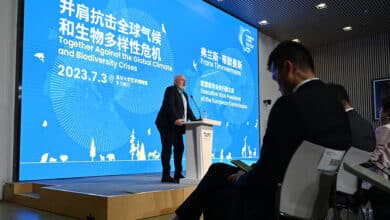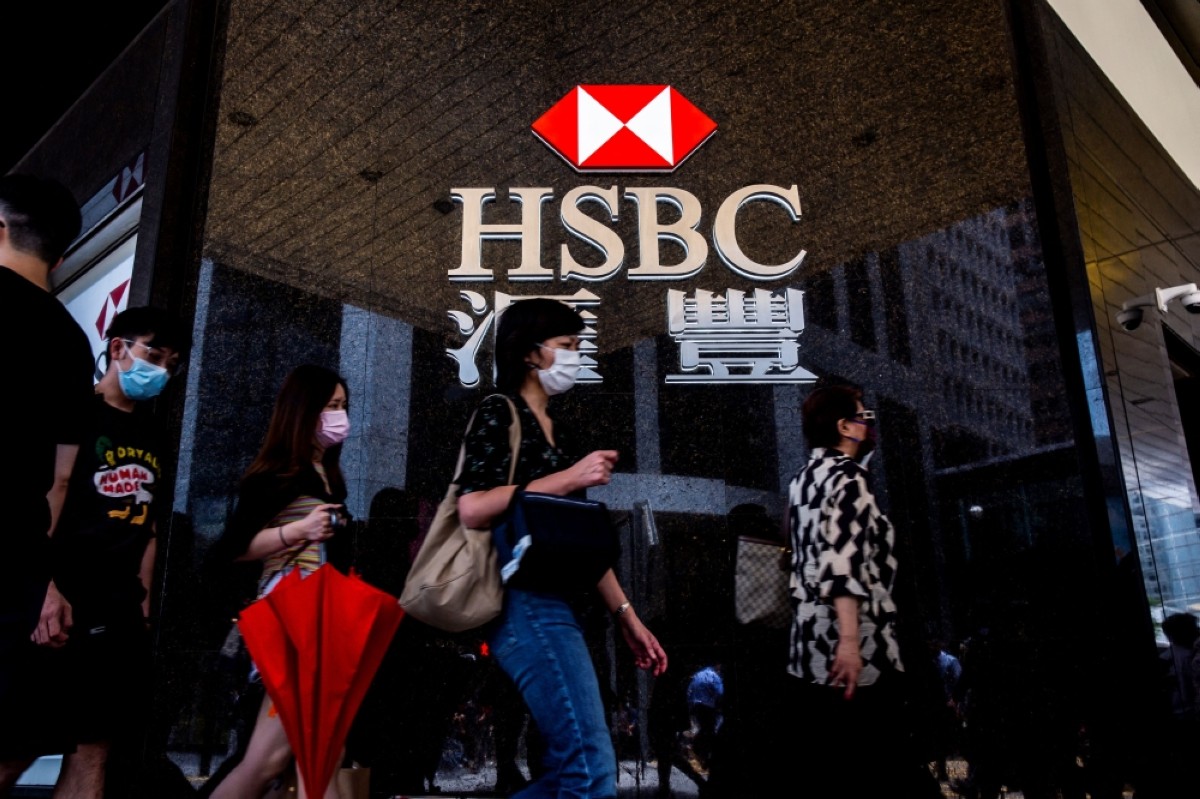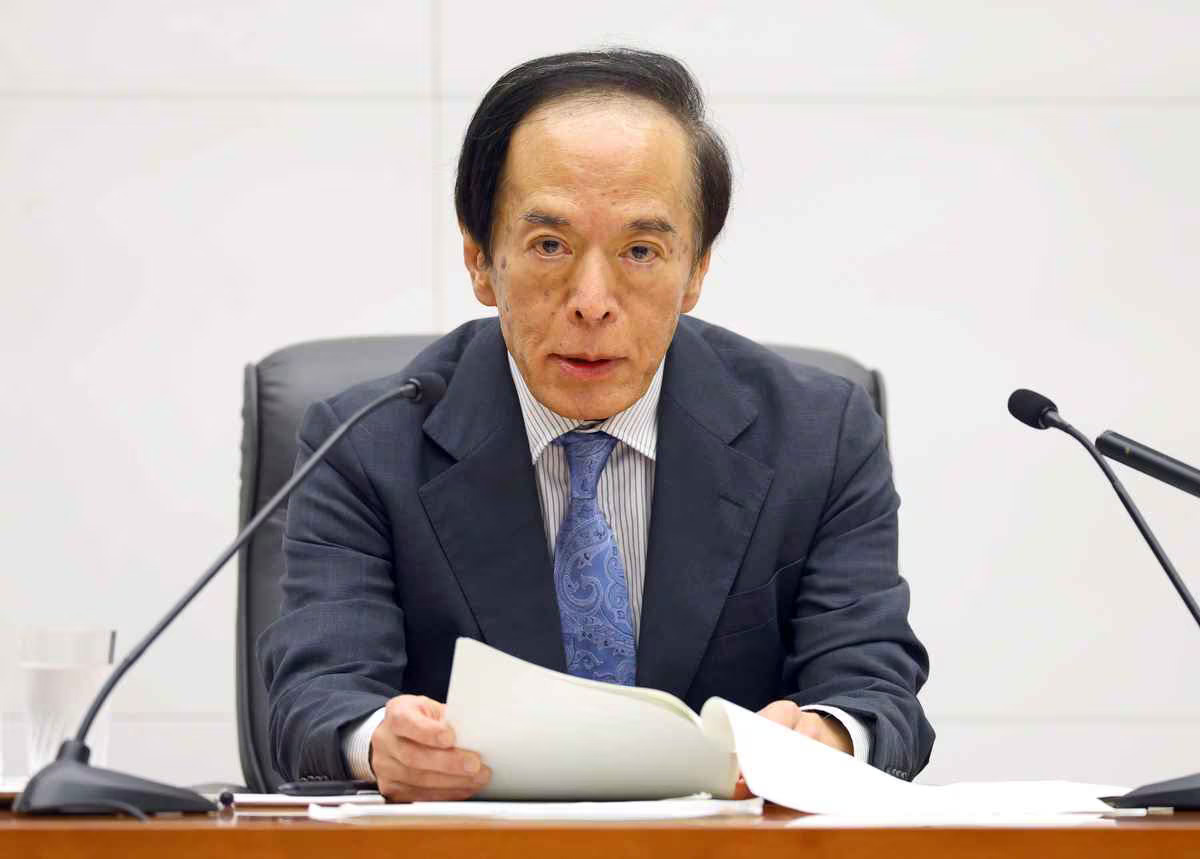EU sees ‘contradiction’ between China’s climate goals, coal plants
BEIJING: A top EU climate official said Monday there is a “contradiction” between China’s ambitious goals to combat global warming and its continued building of coal-fired power plants.

BEIJING: European Commission Executive Vice President Frans Timmermans delivers a speech about climate change to students at Tsinghua University in Beijing on July 3, 2023. – AFP.
European Commission Vice President Frans Timmermans said in Beijing he was “convinced that China is willing to go in the right direction”. “But at the same time, it’s also true that… more coal-fired power plants are opened,” Timmermans said in a speech at Tsinghua University. “And that seems to be in contradiction.” China is also the biggest emitter of the greenhouse gases driving climate change, such as carbon dioxide (CO2), and its emissions pledges are seen as essential to keeping global temperature rise well below two degrees Celsius.
However, China relied on coal for nearly 60 percent of its electricity last year. Greenpeace said in April that China has approved a major surge in coal power so far this year, accusing it of prioritizing energy supply over its pledge to reduce emissions from fossil fuels. The jump in approvals for coal-fired power plants has added to concerns that China will backtrack on its goals to peak emissions between 2026 and 2030 and become carbon-neutral by 2060. Timmermans’ comments come on the heels of record-setting heatwaves and flooding across China in recent weeks that have underscored the potential impacts of continued upticks in global temperatures.
He also warned of the consequences of not restricting global warming to 1.5 degrees Celsius, saying this would lead to a “significant and widespread increase in adverse impacts of climate change, including in extreme weather events”. China’s top climate centre announced at the weekend that 2023 has seen a record number of high-temperature days over a six-month period. Beijing logged its hottest June day ever recorded, the national weather service said last month, as swaths of northern China sweltered in 40-degree heat. Heavy sustained rainfall in central and southern China has also led to severe flooding in recent days, with more than 14,000 people forced to evacuate in Hunan Province, according to state news agency Xinhua.
The United Nations has warned it is near-certain that 2023-2027 will be the warmest five-year period ever recorded, as greenhouse gasses and the El Nino climate phenomenon combine to send temperatures soaring. Beijing has repeatedly urged developed nations in recent years to honor their climate finance pledges. China has rejected the idea that it should no longer be considered a developing country, even though it is now the world’s second-biggest economy. Meanwhile, the European Union’s ambassador to China expressed regret on Sunday over the lack of “substantial progress” with Beijing on trade talks, as EU countries seek to reduce their economic dependence on the Asian giant.
The European Commission has suspended its efforts to get member states and parliament to ratify an investment agreement reached with China at the end of 2020, after seven years of talks, following differences over human rights in the Muslim-majority region of Xinjiang. With relations cooling, the EU also decided in May to “readjust” its position towards China to reduce its economic dependence at a time when Beijing is suspected of giving Moscow tacit support for its war in Ukraine.
“I’m sorry to say that we have a dialogue on economic (issues) and trade which has not made any progress, or at least substantial progress, in the last four years,” EU Ambassador Jorge Toledo said at a forum in Beijing. “We want to engage with China, but we need progress, and we need it this year,” Toledo said, adding that a high-level economic dialogue between the two sides would be held in September. For the EU, China is “simultaneously a partner, a competitor and a systemic rival”, he said.
The European Commission unveiled a strategy last month to respond more decisively to economic security risks, with China in particular in its sights. The Commission put forward proposals in March to secure supplies of materials, such as lithium or nickel, needed for the production of key technologies such as batteries and solar panels. Germany, France and Italy said last week they would cooperate more closely on the procurement of raw materials as Europe aims to reduce its reliance on imports from countries such as China. — AFP.











